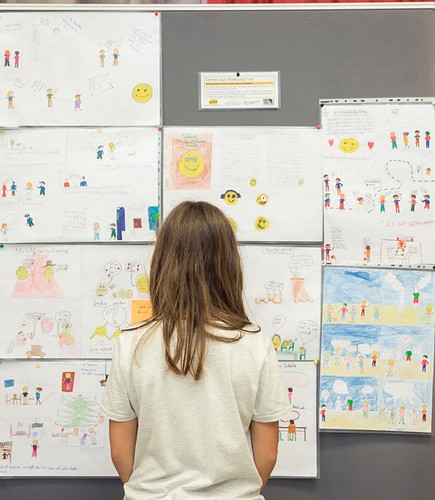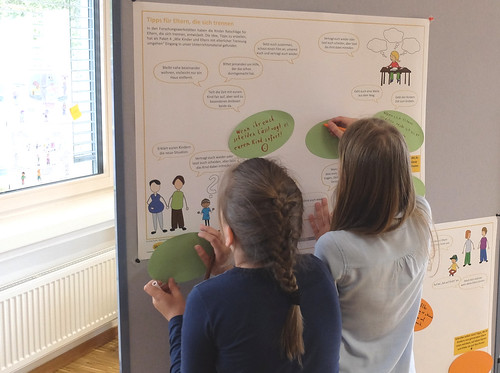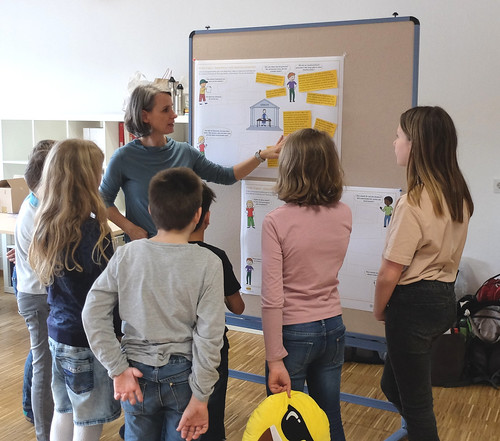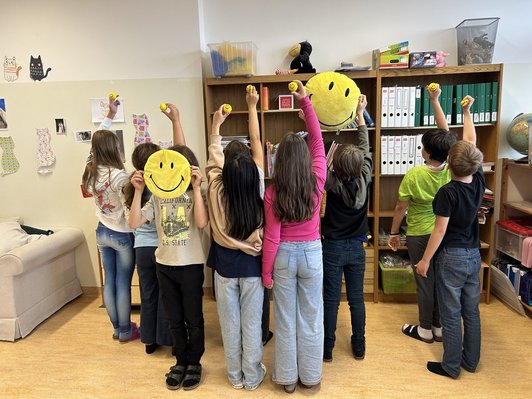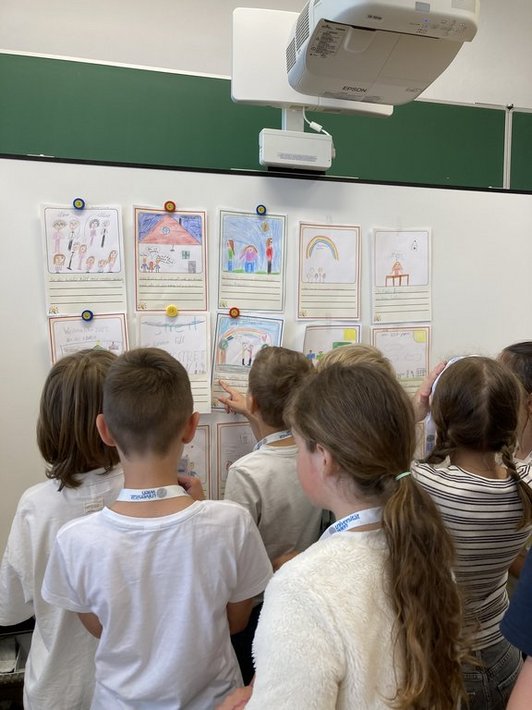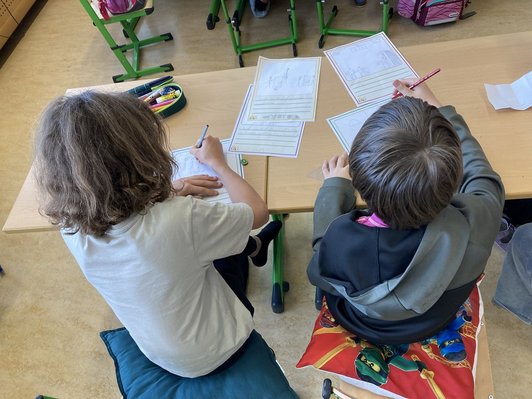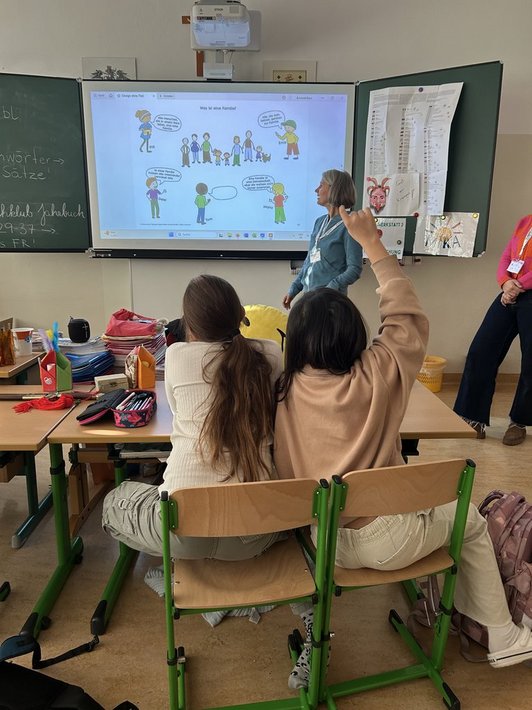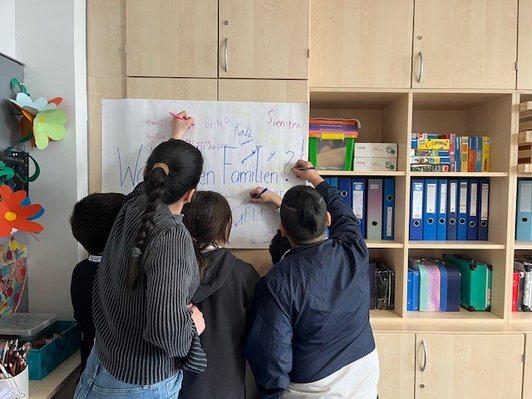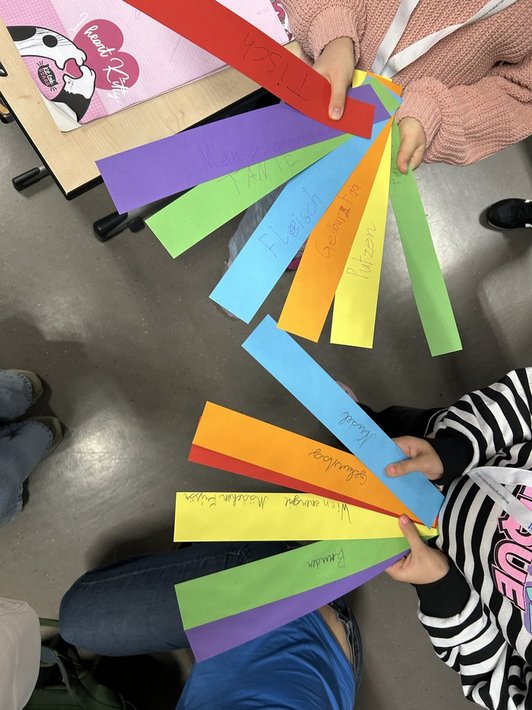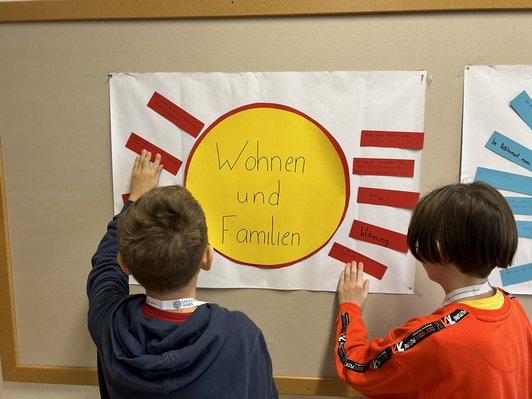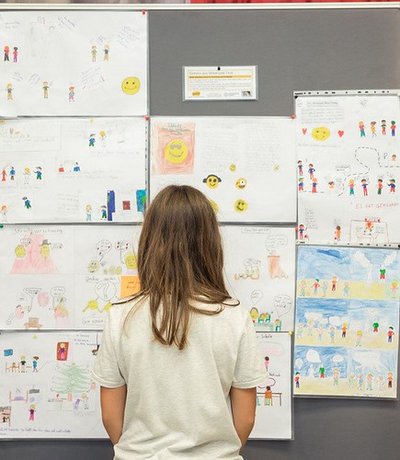Researching families differently with children (MiKA)
Children's concepts of family diversity
Families are increasingly diverse and complex. This results in two crucial challenges for research and schools: (1) Knowledge about how children cope with this complexity and with the family images they encounter in their daily lives is limited, as children's perspectives are not sufficiently and often inadequately considered. (2) Teachers are frequently confronted with the diversity and complexity of families, and are required by the curriculum to address these topics – however, easily deployable materials for practical implementation in everyday teaching are missing. The project “Researching family differently with children” addresses these challenges.
Based on a participatory concept, research into the diversity of families is conducted together with pupils in the third and fourth grades of primary school. In cooperation with student teachers from the University College of Teacher Education (PH Wien), an easy-to-use card set will be developed, called: ‘Familie Kunterbunt. Discovery cards on family diversity’. The students participate in four research workshops using various innovative methods. As part of a ‘treasure hunt’, they search for representations of families in their everyday lives and analyse them together with the research team. In addition, concept cartoons on the diversity of families are developed and discussed together. The participating students benefit from their participation by being taken seriously as experts of their live worlds and can share and reflect on their perspectives in a protected and guided environment. In doing so, they increase their awareness of other viewpoints, learn about and apply social science research methods, and acquire communication skills through open discussions about family diversity.
To ensure the didactic feasibility in the classroom and to achieve sustainable effects, student teachers from University College of Teacher Education Vienna (PH Wien) are involved throughout the entire research process and co-design the research workshops. Furthermore, the students evaluate the card set in their practice classes, enabling peer feedback from primary school students. The research involves third- and fourth-grade students from both an urban and a rural elementary school in Vienna and Burgenland, students from the PH, and students from PH Vienna’s practice classes. The jointly developed card set will be permanently available via the project homepage for free. To achieve further sustainable effects, the card set and research findings will be presented at a publicly accessible event.
 Schools
Schools
 Partners from Economy and Society
Partners from Economy and Society
 Scientific institutions
Scientific institutions

